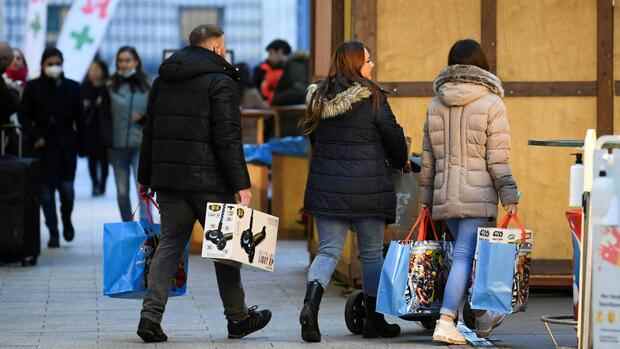The EU Commission estimates that the economy will pick up despite high inflation.
(Photo: Reuters)
Brussels, Berlin According to the EU Commission, the economy in the euro zone is likely to pick up again in the spring, despite the fact that inflation will remain high for the time being. The gross domestic product (GDP) is expected to increase by 4.0 percent this year.
In its forecast updated on Thursday, the Brussels authority also predicts a much higher rate of price increases for 2022 than assumed in autumn: it is expected to climb to 3.5 percent, well above the ECB’s target of 2.0 percent. “The price pressure will probably remain high until the summer,” warned EU Commissioner Paolo Gentiloni.
In the fall, the EU Commission was still assuming an inflation rate of just 2.2 percent for 2022. According to the EU Commissioner, however, with the easing of supply bottlenecks and only moderate increases in energy prices, an easing on the price front can be expected from the autumn.
In 2023, it can be expected that the European Central Bank’s (ECB) target of 2.0 percent will be undercut again with an expected inflation rate of 1.7 percent. “Nevertheless, uncertainty and risks remain high,” admitted the Economic and Monetary Affairs Commissioner, with a view to disruptive factors such as the pandemic and the Ukraine crisis.
Top jobs of the day
Find the best jobs now and
be notified by email.
Despite the high inflation, which is a burden for companies and consumers, the authority expects an upswing in the currency union. Although it lowered its growth forecast for the current year from 4.3 to 4.0 percent, it raised it for 2023 from 2.4 to 2.7 percent. “Strong headwinds have cooled the European economy this winter: the rapid spread of omicron, a further rise in inflation due to rising energy prices and ongoing supply chain disruptions,” Gentiloni said.
Brussels lowers forecast for Germany for 2022
However, this headwind will gradually subside. “We expect growth to pick up speed again as early as spring,” said the Italian. All member states are likely to return to their pre-crisis levels over the course of the year.
For Germany, the EU Commission lowered its growth forecast for this year from 4.6 to 3.6 percent, but raised it for 2023 from 1.7 to 2.6 percent. From spring, Europe’s largest economy should be back on course for growth – “benefited by the expected decrease in infections and supply bottlenecks”.
Record high order backlogs should fuel the industry. “The accumulated savings should spur a renewed recovery in private consumption, although rising consumer prices weigh somewhat on purchasing power,” it said.
More: Surprisingly, Feld does not go to Austria
